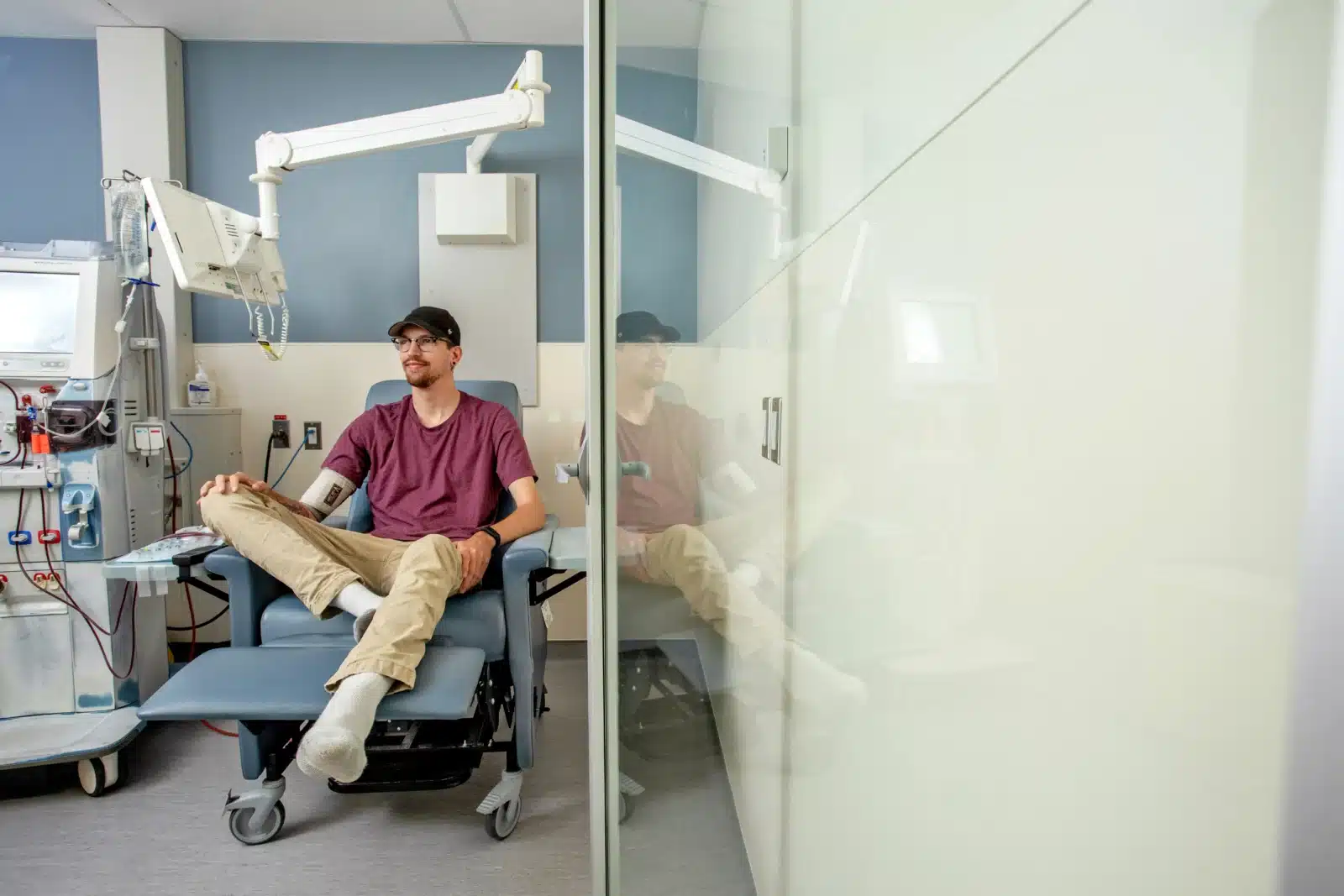FINDING HIS GROOVE
Ryan Weir is a budding recording artist, with a knack for crafting his own sound. He’s soft-spoken but his 6’8” stature commands a presence in any space he walks into. As someone who finds peace in spending time outdoors, he looks forward to his family’s annual backcountry camping traditions, and wouldn’t miss a trip, even with the added challenge of navigating his demanding dialysis schedule.

“I can tell the difference in how I feel after being on dialysis, I feel more like myself.”
Ryan Weir, Grateful Patient
At age six, a game of hockey led to a diagnosis that would change Ryan’s life forever. While playing shinny with his friends in the driveway, he collapsed. He was rushed to the hospital and after several tests, it was determined that he had Alport syndrome—a genetic condition affecting the kidneys.
Over time, the condition destroys the kidneys’ tiny blood vessels, leading to progressive failure.
“In my case, the disease advanced much earlier than we were expecting,” shared Ryan. “Since I was young, I’ve always gone for regular bloodwork at RVH to monitor my kidney function. Near the end of last year, it became obvious they were failing.”
His only option was to begin life sustaining dialysis.
Under the care of the Regional Renal Program at RVH, Ryan now receives hemodialysis through a port in his chest on Mondays, Wednesdays, and Fridays, either in the hospital or at RVH’s Wellington Street Dialysis Clinic.
At twenty-five, passing hours in a hospital chair, several times a week, wasn’t how Ryan thought he’d be spending his time, but he’s chosen to make the most of his situation.

“I can tell the difference in how I feel after being on dialysis,” he admits. “I feel more like myself.”
He will continue his routine until he can receive a transplant.
“My dad is being tested to see if he’s a donor candidate, otherwise, we’ll look at other options.”
For now, he’s okay with doing what it takes to stay healthy.
“I’m comfortable here and there are things I can do to keep my mind busy while I’m in the chair,” he jokes. “I can play on my phone or get a nap in.” On most days, all the spots around him in the dialysis clinic are full of people doing just what he is, passing time, but the ability to receive life-saving dialysis close to where he lives isn’t lost on Ryan. He gets how important this care is for him and for others in similar situations.

